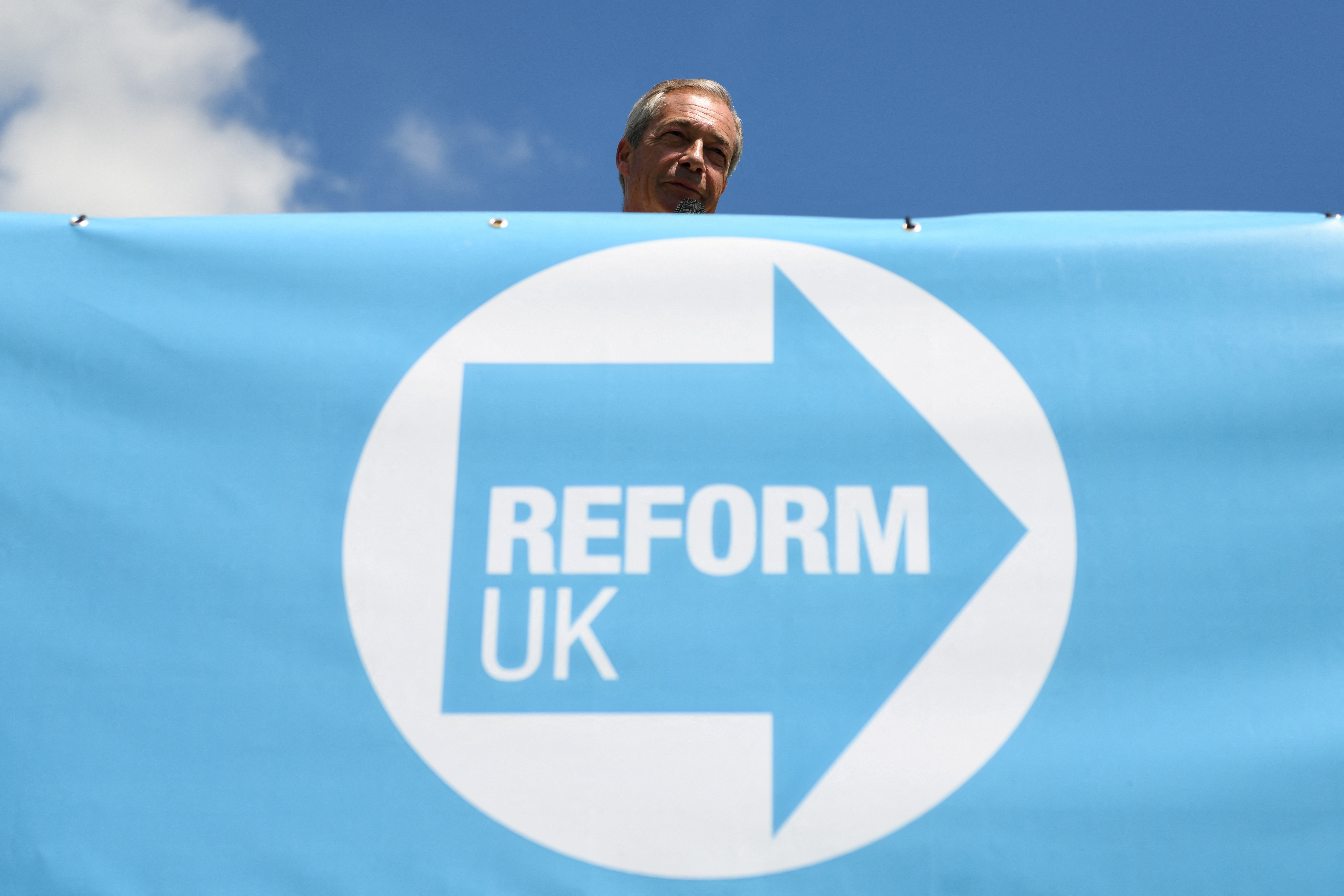Reform UK: A Breakaway Threat And The Party's Struggle For Unity

Table of Contents
Reform UK's Origins and Ideological Foundation
The Brexit Legacy
Reform UK emerged directly from the Brexit Party, inheriting much of its membership and core ideology. Its origins are inextricably linked to Nigel Farage, the influential figurehead who played a central role in both movements.
- Key policies inherited from the Brexit Party: A strong focus on leaving the European Union, opposition to further European integration, and a generally Eurosceptic stance.
- Initial membership demographics: Primarily comprised of individuals who strongly supported Brexit and felt disillusioned with the Conservative Party's handling of the issue.
- Early successes and failures: Initial electoral successes in the European Parliament elections were followed by a period of consolidation and strategic adjustments as the party adapted to the post-Brexit landscape.
Core Ideological Pillars
Reform UK's ideology can be characterized by a blend of Euroscepticism, economic liberalism, and a strong anti-establishment sentiment. The party champions lower taxes, reduced regulation, and a smaller state.
- Specific policy examples: Proposals for deregulation, tax cuts, and a renegotiation of trade deals outside the EU framework.
- Comparison to other UK parties: Positions itself as a distinct alternative to both the Conservative and Labour parties, attracting voters dissatisfied with the mainstream political landscape.
- Potential appeal to specific voter segments: Attracts voters disillusioned with the traditional parties, particularly those who feel their concerns about immigration and sovereignty are not adequately addressed.
Initial Growth and Momentum
The party experienced a rapid initial rise in popularity, fueled by the energy surrounding Brexit and a sense of dissatisfaction with established parties.
- Notable election results: Strong performances in local elections and by-elections, though not yet translating to widespread national success.
- Media coverage: Significant media attention, often framed around its breakaway nature and its leader's controversial statements.
- Key figures involved in early success: The role of Nigel Farage and other key figures in driving early momentum is undeniable.
Internal Divisions and Factionalism within Reform UK
Leadership Challenges and Power Struggles
Internal conflicts and power struggles have plagued Reform UK since its inception. These conflicts often stem from differing views on strategy and leadership.
- Key figures involved in disputes: Internal disagreements and leadership changes have created instability within the party.
- Causes of conflict: Differing opinions on electoral strategy, communication styles, and the party's overall direction.
- Impact on party cohesion: These internal battles have undoubtedly undermined party unity and hampered its ability to present a cohesive front to the electorate.
Divergent Policy Positions and Ideological Tensions
Disagreements on policy and ideology further complicate Reform UK's internal dynamics. While a shared Euroscepticism unites many members, divergence on other issues creates internal factions.
- Specific policy disagreements: Debates regarding the appropriate level of government intervention in the economy, social policies, and specific approaches to Brexit-related issues.
- Factions within the party: The existence of competing factions within the party has led to infighting and public disagreements.
- Impact on public image and credibility: Internal divisions damage public perception and credibility, making it difficult for the party to present a united and convincing message.
Membership Dynamics and Internal Dissent
The composition of Reform UK's membership and the level of internal dissent are crucial factors affecting its stability.
- Demographics of membership: While initially dominated by Brexit supporters, the membership's composition and level of engagement remain subjects of ongoing analysis.
- Evidence of internal disagreements: Public resignations, internal disputes made public through media leaks, and statements by former members all point to significant internal friction.
- Impact on party stability: Internal dissent undermines the party's stability and long-term viability, hindering its ability to build a robust and effective political machine.
The Challenges of Maintaining Party Unity and Future Prospects
Strategies for Overcoming Internal Divisions
Addressing internal conflicts and fostering unity requires strategic interventions.
- Possible solutions: Improved internal communication, stronger and more unifying leadership, clearer policy platforms, and a focus on shared goals.
- Potential obstacles to implementation: Deep-seated ideological differences, personality clashes, and the inherent challenges of managing a rapidly growing political movement.
Reform UK's Electoral Prospects and Long-Term Viability
Reform UK's electoral prospects and long-term viability remain uncertain.
- Analysis of potential electoral gains/losses: The party's ability to translate its support base into electoral success is a significant challenge.
- Comparison to other parties: Needs to overcome the hurdles faced by other smaller parties in a two-party dominated system.
- Factors affecting long-term viability: Stable funding, maintaining membership numbers, building a credible public image, and demonstrating effective organizational capacity are crucial.
The Impact of Reform UK on the broader British political landscape
Despite its internal struggles, Reform UK has had a measurable impact.
- Examples of policy influence: While not achieving widespread electoral success, the party has influenced the political discourse on issues such as Brexit and economic policy.
- Impact on other parties: Has forced mainstream parties to address some of the concerns raised by its voters.
- Shifts in public opinion: The party's presence has contributed to a broader shift in public opinion on certain political issues.
Conclusion: Reform UK's Future Hinges on Unity
Reform UK's potential as a disruptive political force is undeniable, yet it's significantly hampered by internal divisions and factionalism. The party's future hinges on its ability to overcome these challenges. Key challenges include addressing leadership conflicts, resolving policy disagreements, and fostering a more unified and cohesive organizational structure. The future of Reform UK, and its impact on British politics, will depend heavily on its ability to overcome internal divisions and consolidate its message. Keep following the developments within Reform UK to understand the evolving dynamics of this fascinating breakaway political party.

Featured Posts
-
 Sydney Sweeney Denies Reconciliation With Ex Fiance Despite Public Appearances
May 04, 2025
Sydney Sweeney Denies Reconciliation With Ex Fiance Despite Public Appearances
May 04, 2025 -
 Emma Stooyn Kai Margkaret Koyalei Tsakomos Sta Oskar Analysi Vinteo
May 04, 2025
Emma Stooyn Kai Margkaret Koyalei Tsakomos Sta Oskar Analysi Vinteo
May 04, 2025 -
 Renovations At Churchill Downs Ahead Of The Kentucky Derby
May 04, 2025
Renovations At Churchill Downs Ahead Of The Kentucky Derby
May 04, 2025 -
 Eubank Jr Vs Benn A Bigger Fight Than Canelo
May 04, 2025
Eubank Jr Vs Benn A Bigger Fight Than Canelo
May 04, 2025 -
 Deutschland Beim Esc Wiener Duo Abor And Tynna Im Fokus
May 04, 2025
Deutschland Beim Esc Wiener Duo Abor And Tynna Im Fokus
May 04, 2025
